On & After ANIMAL DRUMS
David SPITTLE
An essay circling SJ FOWLER
& Joshua ALEXANDER’s
motion-picture-poem
Four years in the making, The Animal Drums is a collaboration between poet and artist SJ Fowler and moving image artist Joshua Alexander. The Animal Drums is a feature-length art-film exploring the sad, macabre, abstract threat of a contemporary London in the grips of constant and nefarious growth. The film charts the the particular, baffled and morbid character of English attitudes to mortality, along with the specific influence of place and conformity on the quintessentially English deferral of emotion and melodrama. It captures the ambiguous menace of an often accidentally humorous resolve, manner, apology and understatement so prevalent in the English character within a city that is proudly un-English, and it dwells upon the unfortunate consequence of blind development. Here, David Spittle offers an analysis of the neurosis of place—be it public or private; cultural or corporate—that sits at the centre of the city under Fowler and Alexander’s lens in Animal Drums to question ideas of form, function and communication considered over the course of its running time.
Animal Drums is the first feature-length film by poet Steve Fowler and filmmaker Joshua Alexander but, as the inhumanly low voiceover drawls nearing its end (but not in ending): ‘it is not a film, you wake and find yourself in pastures new.’ As much as ‘pastures new’ might suggest a hopeful Albion, something visionary clearing its throat inside the jangling attention of psychogeography… here, any moment of calm or release—the bees diligently knocking from leaf to leaf in a summer drone or a canal’s steady mirror—these are only ever brief possibilities, less present in their potential to be realised than in their vulnerability to ruin. You might wake up, but only through the glitch and bruise of a changing city, reeling in an unwell mind and propelled by a questioning of where art or the artist might fit into this quick neurosis of place.
There is a plague doctor on a park bench, a man by the sea with his face censored, an ice-cream-van-man cheerily dishing out banality with conspiracy, rows of skulls, a teddy-bear mask locked into a furred rictus of performance art, a spectral economy that claims itself through ‘ghost flats’, the possibility that a painting was not a depiction of oyster-diving but drowning, and through it all the interrupted dialogue (real and imagined) of a man who is part of, but empoweringly and disturbingly apart from, the city around him. Primarily, this is a film that burrows into two itching sites of change, Steve Fowler (the persona, poetics, performance, and restless creation)… and London.
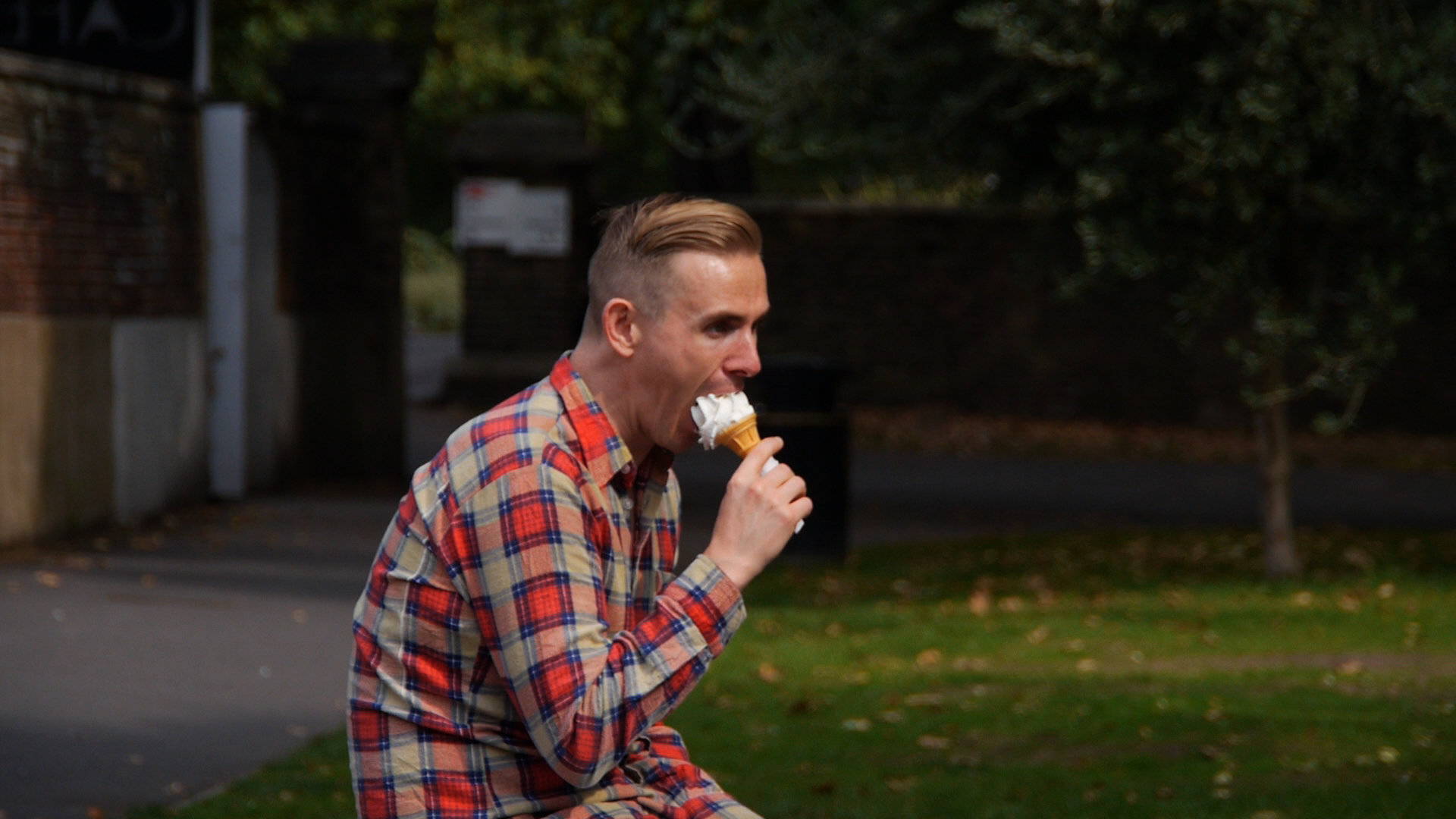
This a city with a cultural industry deployed to distract from its rapid property development and to sublimate the fall-out from escalating housing prices, a city that endorses inoffensive art as a way of virtue-signalling its way out of corrupt tax havens and the callous neglect of its populace. Endlessly promoting through cultural capital and tiresome heritage, the city advertises a pantomime of itself severed from both its art and local history. Pop-up Gyms compete with coldly lavish flats as partially exhumed versions of morality and memory stagger, pissed and forgotten, through disappearing space. Even the psychogeography of this perspective now seems to fold in on itself, approaching its own methods and tradition like another haunted territory. If Patrick Keiller’s film, London (1994), exchanged its wry detachment and stasis for an overwrought and pacing articulation of mental illness—one that just happened to find metaphorical release in the tolling bell of a housing crisis propped up by an absent rich elite and then tidily ‘artwashed’ by bland commissions, gathered like so many beige boxes ticked to appease a funded middle-brow born out of catering for corporate elevator music or for patronising a hypothetical ‘public’—this, Animal Drums, would be the necessarily unfinished result.
There is the distress, the offense, of breaking the surface with truly individual art (not prepared for, designed by, and explained to, committee), and there is also the breaking apart at/of what has become only surface. The film approaches this corporate management of self and city as simultaneously liberating in its realisation and appalling in its lived encounter: waking up to, and through, new experiences of anxiety. Each electronic pulse of sound and digital glitch of film becomes the ‘Animal Drum’: the actual bones sticking out from a synthetic skin of heritage and culture; or the crack in our glassy replication and distortion through online selfhood, tracing the sense of something no longer there. In a Lucifer-like red glow, Fowler (a nominal protagonist given a non-specific and slippery profile) confides, with a grinning intensity, ‘that is the thing about London, if it doesn’t go online I can kinda get away with anything’. Though online presence and the promotional ‘city’ of social media is never again explicitly mentioned, it is undeniably buzzing in the film’s agitated structure, informing the paranoia and interference it both addresses and becomes. Any virtual affirmation of self is the lonely volunteering for a self-surveillant template of living through the retreat from any actual living that then turns against itself (a self that was never more than advertising space and data) to decry that life has become a heightened experience of that same loneliness that compelled it into online expression.
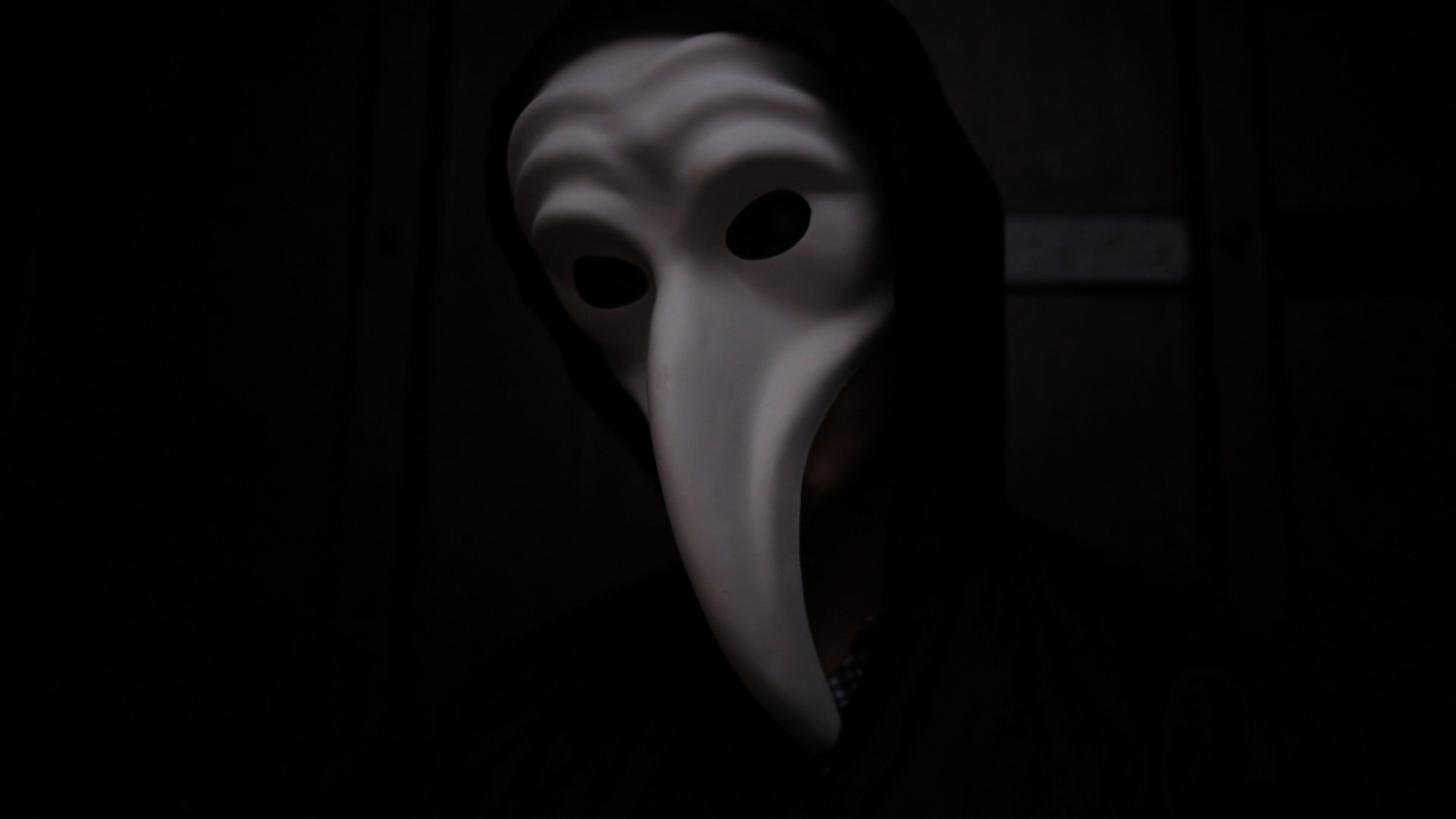
Not unlike these tensions between the city and the self, both split by repressive economies of promotion and the snagging of lived actuality, this film includes its own disavowal: ‘this is not a film’. It is a phrase that announces as it denounces, not an unfamiliar paradox but one that is neither in the historically playful Surrealism of Magritte’s infamous, Ceci ne’st pas une pipe (1928-9), nor in the structuralist theorising taken up so keenly by the formalist work of the London Filmmaker’s Co-op (1966-1999, mostly active in the mid 70s). Animal Drums does not prioritise semiotic gestures of deconstruction but is instead wringing its trembling hands at the sad exhaustion of such thinking (the inevitable ‘always already’ disappointing in its false radicalism) or equivocating in the nervously excitable opportunity where one could ‘get away with anything’ but in realising such a chance is then intrusively hounded by contradiction and conflict.
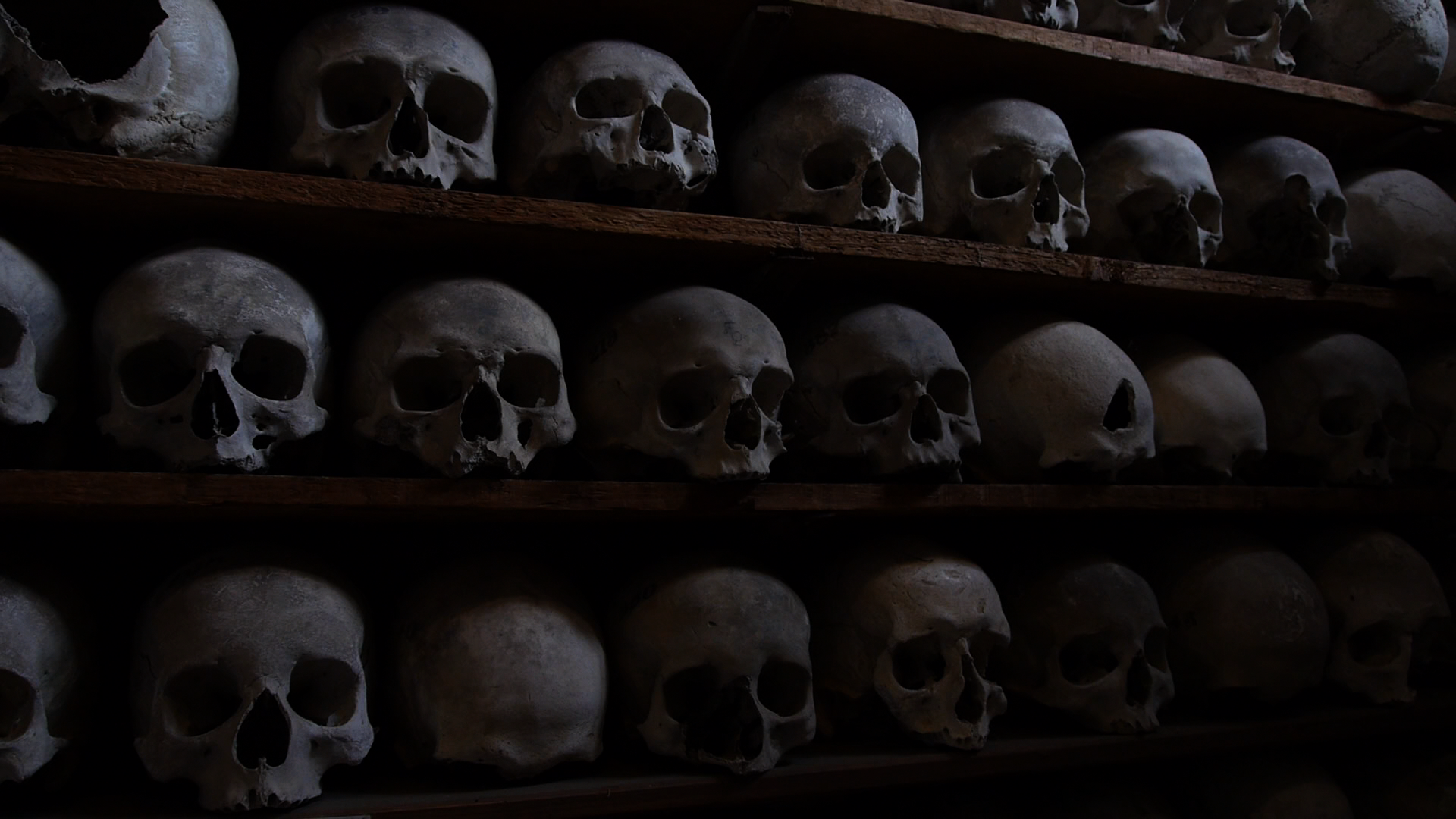
As it ends, dismissing the possibility of any end in addition to its status as a film, Animal Drums could be imagined to loop back to its convulsive beginning: a pixilation of image accompanied by a distortion of sound. The bleeding of digital image into its bare and broken squared anatomies, like an error of early graphics wrestling with primitive thermal-imaging, it wretches at a kind of double-life and how it cannot help but split and double further. A film, a city and a self, as all and interchangeably caught between the destructive construction of any singular pretence at being and the fraught prospect of continuing to be, in and from, the rubble of that undoing.

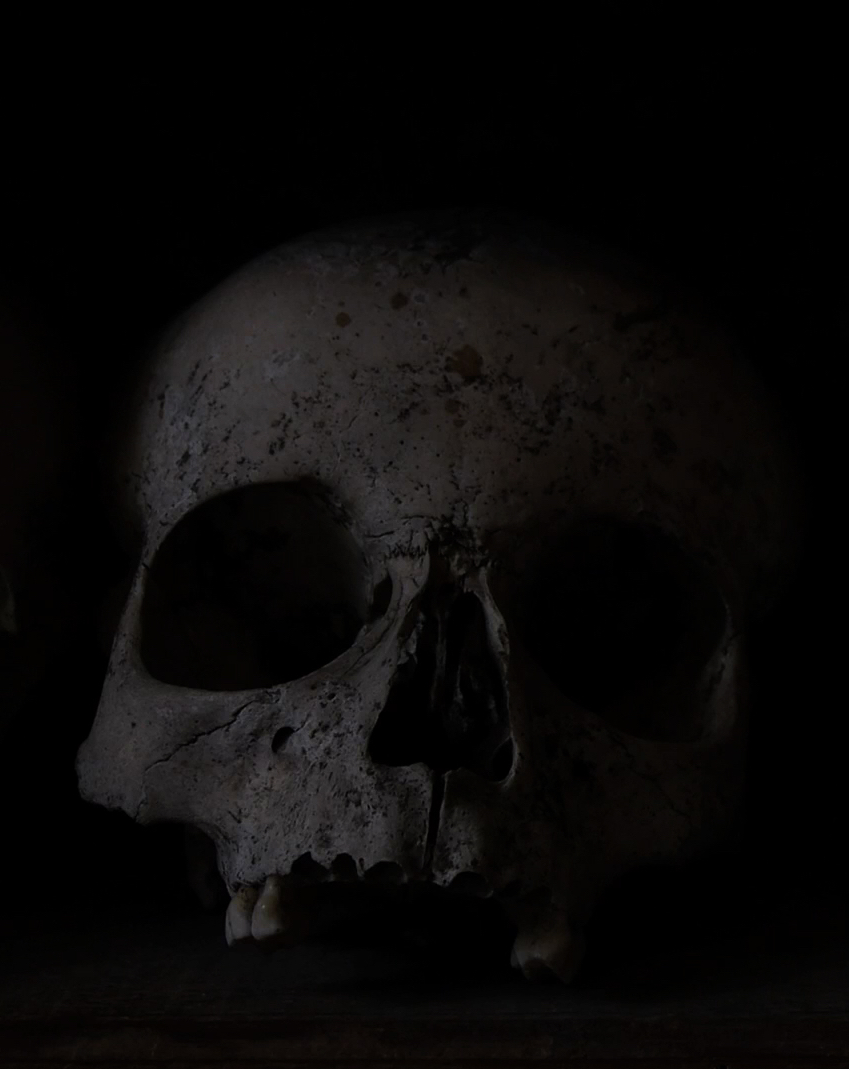
The glitching pulp of red that begins the film keeps flashing across in other sequences, a blinked glimpse of the plague doctor and occasionally a peaceful but disintegrating shot of a forest. These images become like obsessive thoughts or the rupturing of flashbacks…it is half way through the film that we realise the incoherent red glitch is a distortion of a figure about to read, a performance. Steve Fowler has often looked at ways to unsettle, include or challenge audiences in order to resurrect the polite coma of most poetry readings into an unpredictable exchange between people. But it is that space, the reading—and more significantly, the performance—that seems to encapsulate a locus of anxiety for the film: a moment where the personal and persona of what might constitute Steve Fowler is allowed to blur and seem vulnerable. He mutters into the microphone, ‘It’s funny, people have all these thoughts in their mind and you speak to them…’ he trails off, repeats and trails back, as if lost and even afraid. This is followed by the admission, ‘I have a problem with impulse control’, which is then repeated around four times before descending into an apologetic mantra: ‘I’m sorry, I’m sorry, I’m sorry…’For the film, it is unclear whether this is the protagonist (that both is and isn’t Steve Fowler) staging his own breakdown, or whether it is in fact a traumatic collapse in front of an audience. Again, like the city it takes place in, the reading seems a movement between performed image and lived reality, coaxing one into the other until each are prickled with the other’s shadow.
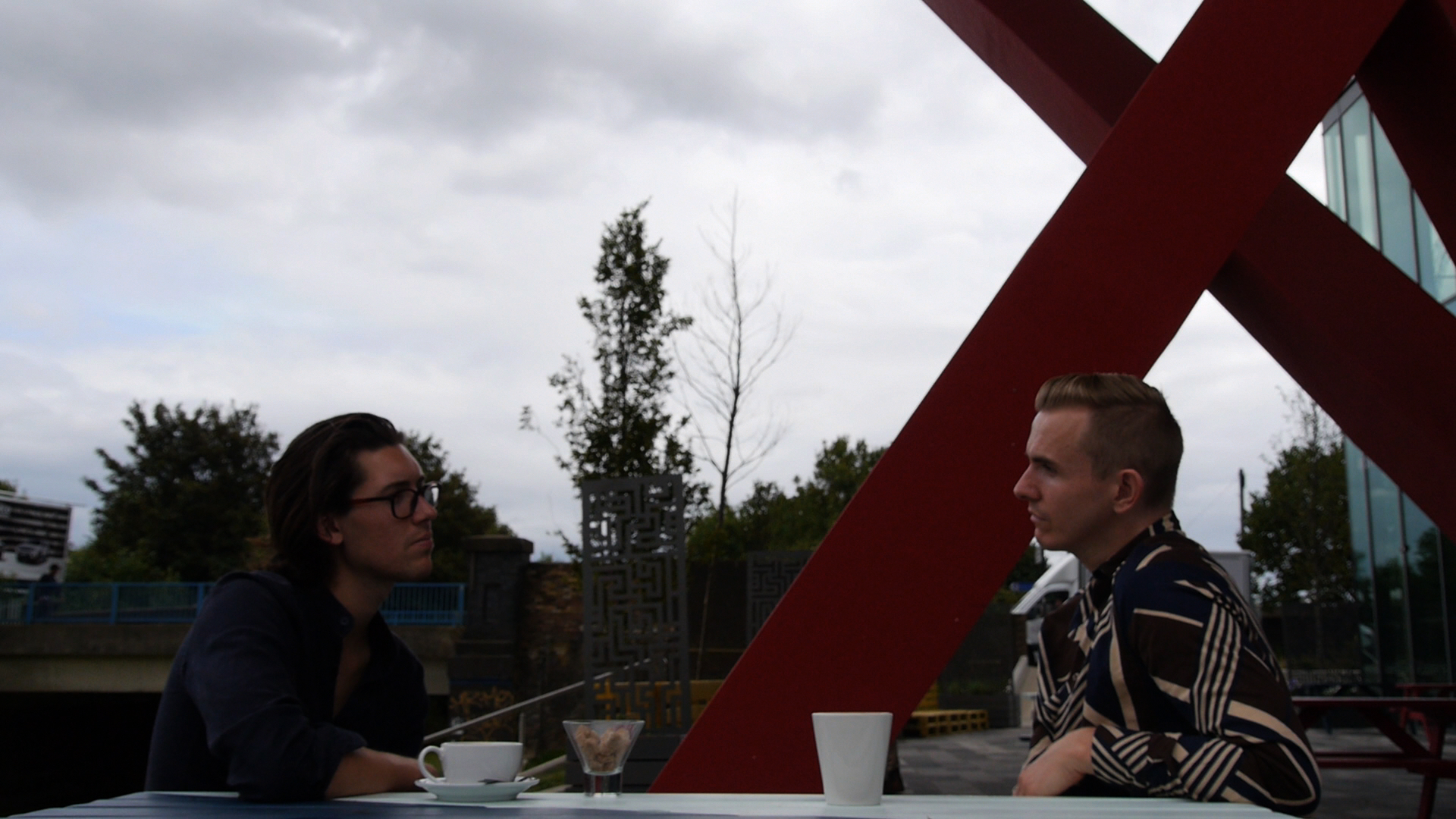
This is a poet who, within just seven years has published nine poetry collections, two art books, a selection of fifteen collaborative and hard to categorise ‘other’ publications, had his own solo exhibition, conducted and curated a multitude of interviews with European poets (the Maintenent series with 3am Magazine), organised hundreds of events (mainly around the Enemies project) and whose art (in poetry/performance/the visual and audio) splits its energy between accident and intention to often explore an uncomfortable ambiguity between the offensive and its jagged critique or parody. The position or role of ‘offense’ is a potent drive behind much of Fowler’s fragmented questioning, as alive in his poetry as it is in the film. The problematic insistence on the ‘problematic’ in art has itself become increasingly problematic. The polarized bludgeoning of forces like Twitter have created a binary culture whereby the progressive and ongoing work to remove institutionalised prejudice and broaden inclusivity in art is damagingly conflated with a need to reductively limit art to moralising megaphones of ideology. Animal Drums splinters this conviction and instead opens up a troubling examination of where the troubled mind might go, anonymous and vulnerable or overlooked and dangerous, lonely or free, lost in a city equally beset by the drive to insist upon moralising cultural dedication at the very same time it deepens a perversion of those values. The plague doctor’s mask never slips but the film suggests that maybe the plague we are now confronted with is one of masks.
Joshua ALEXANDER is a visual artist whose work often combines poetry and moving image. His film Ghost Machinery was recently nominated for the international prize at Zebra Poetry Film Festival in Germany in 2018. He has been commissioned to make short films by several organisations including The Austrian Cultural Forum and English Pen. He has screened work at various events including A World Without Words and Kakania, and in 2014 he had a solo exhibition of photography work at The Hardy Tree Gallery. He is currently taking the MFA at Ruskin School of Art.
Steven J FOWLER is a writer and artist who works in poetry, fiction, theatre, film, photography, visual art, sound art and performance. He has published seven collections of poetry, three of artworks, four of collaborative poetry plus volumes of selected essays and selected collaborations. He has been commissioned by Tate Modern, BBC Radio 3, Tate Britain, the London Sinfonietta, Wellcome Collection and Liverpool Biennial. He has been longlisted for the Forward Prize and been sent to Peru, Bangladesh, Iraq, Argentina, Georgia and other destinations by The British Council. He has read at festivals including Hay on Wye, Cervantino in Mexico, Berlin Literature Festival and Hay Xalapa. He was nominated for the White Review prize for Fiction in 2014. His plays have been produced at Rich Mix, where he is associate artist, and his visual art has been exhibited at the V&A, Hardy Tree Gallery and Mile End Art Pavilion.
David SPITTLE has poetry published in Blackbox Manifold, 3am, The Literateur, Datableed, Zarf, and is translated into French by Black Herald Press. Twice shortlisted for the Melita Hume Prize (2015/2016) and included in the Best New British and Irish Poets 2016 Anthology (Eyewear Press). His first pamphlet, B O X, is with HVTN Press (September, 2018). In addition to poetry, he has written the libretti to three operas, performed at various venues around Cardiff and at Hammersmith Studios in London. In 2014 David was commissioned to write a song cycle for the Bergen National Opera, since performed internationally. He has curated a series of interviews, Light Glyphs, with poets-on-film and filmmakers-on-poetry. This ongoing series has included John Ashbery, Guy Maddin, Sophie Mayer, Andrew Kötting, Redell Olsen, John Adams, and Lisa Samuels.
Steven J FOWLER is a writer and artist who works in poetry, fiction, theatre, film, photography, visual art, sound art and performance. He has published seven collections of poetry, three of artworks, four of collaborative poetry plus volumes of selected essays and selected collaborations. He has been commissioned by Tate Modern, BBC Radio 3, Tate Britain, the London Sinfonietta, Wellcome Collection and Liverpool Biennial. He has been longlisted for the Forward Prize and been sent to Peru, Bangladesh, Iraq, Argentina, Georgia and other destinations by The British Council. He has read at festivals including Hay on Wye, Cervantino in Mexico, Berlin Literature Festival and Hay Xalapa. He was nominated for the White Review prize for Fiction in 2014. His plays have been produced at Rich Mix, where he is associate artist, and his visual art has been exhibited at the V&A, Hardy Tree Gallery and Mile End Art Pavilion.
David SPITTLE has poetry published in Blackbox Manifold, 3am, The Literateur, Datableed, Zarf, and is translated into French by Black Herald Press. Twice shortlisted for the Melita Hume Prize (2015/2016) and included in the Best New British and Irish Poets 2016 Anthology (Eyewear Press). His first pamphlet, B O X, is with HVTN Press (September, 2018). In addition to poetry, he has written the libretti to three operas, performed at various venues around Cardiff and at Hammersmith Studios in London. In 2014 David was commissioned to write a song cycle for the Bergen National Opera, since performed internationally. He has curated a series of interviews, Light Glyphs, with poets-on-film and filmmakers-on-poetry. This ongoing series has included John Ashbery, Guy Maddin, Sophie Mayer, Andrew Kötting, Redell Olsen, John Adams, and Lisa Samuels.
